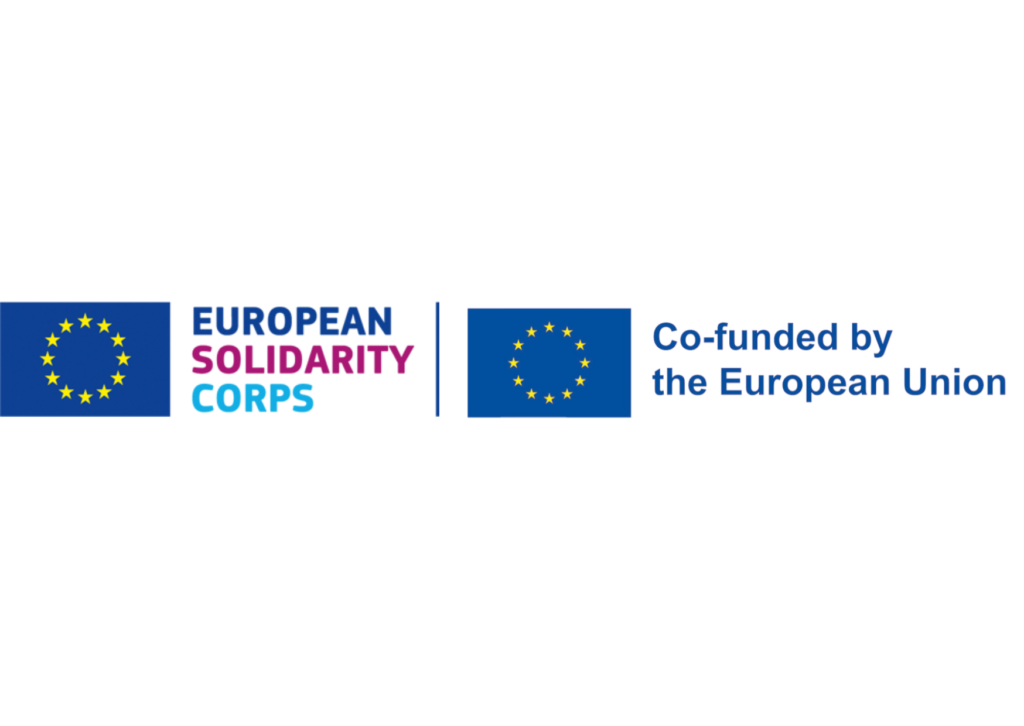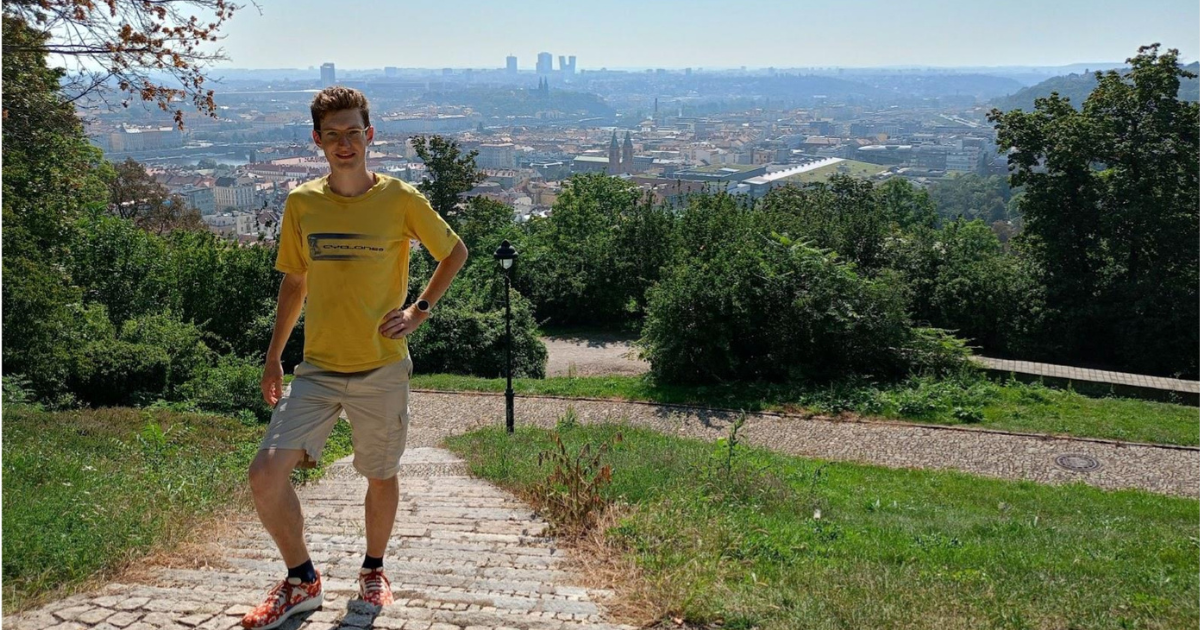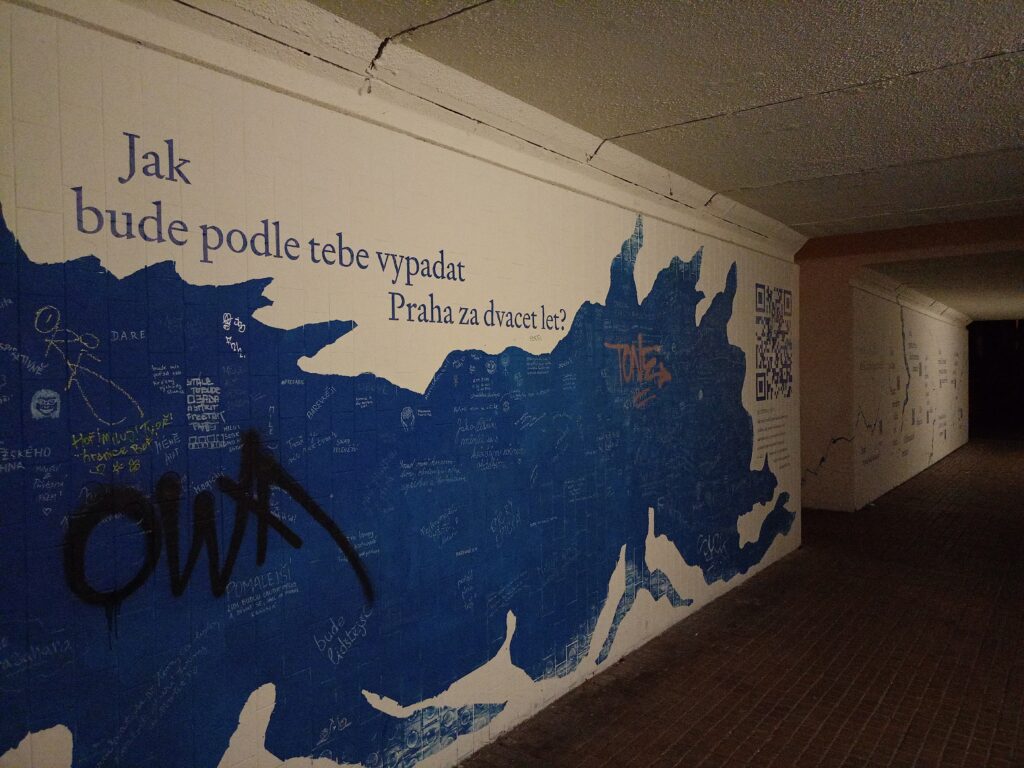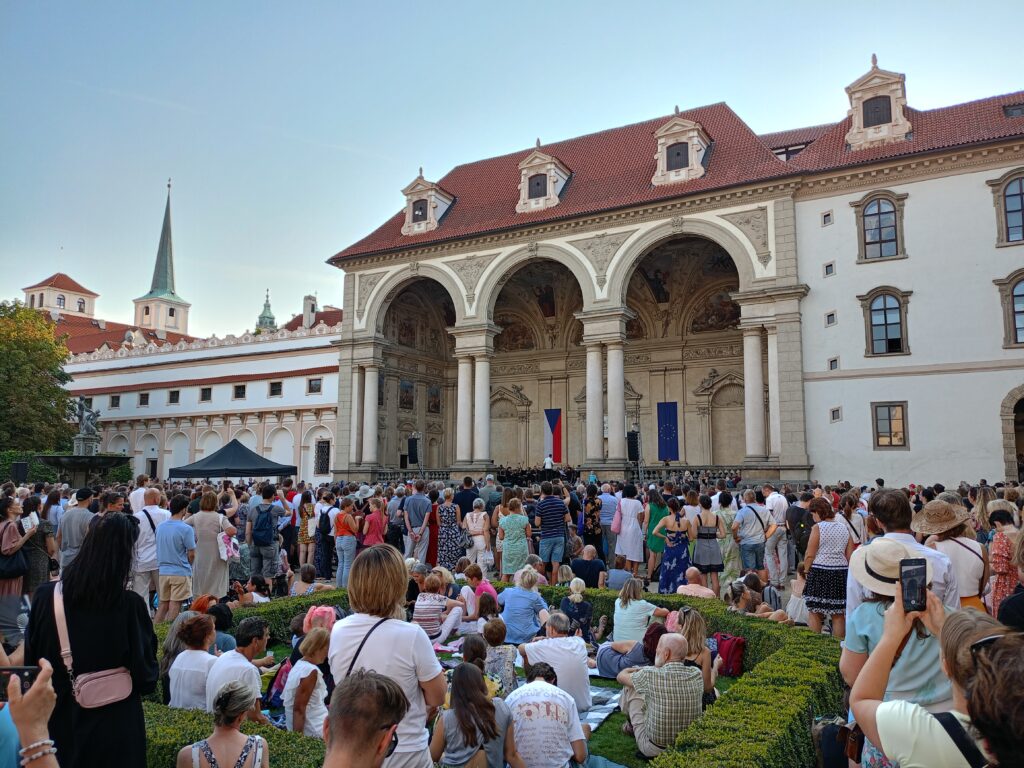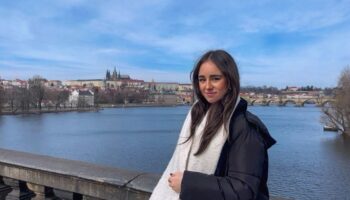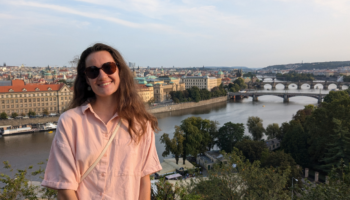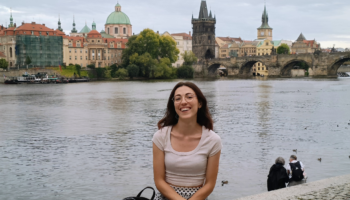Arriving in Prague by night train from Warsaw, I found myself in the morning at an apartment where I was warmly welcomed by another ESC volunteer, María. She showed me my room and told me about the neighbourhood where I would spend a total of 8 months. It turned out that there is everything I need, including a supermarket across the street, a spacious forest on the other side of the estate, and a metro station within walking distance. María herself turned out to be a lovely and very kind person, with whom I could chat in the evenings about various topics or exchange gossip about the INEX office.
Since I had the whole day to myself and was eager to explore the city instead of resting after my journey, I decided to combine the pleasant with the useful and take care of as many matters as I could on my first day. I set myself the challenge of trying to use the Czech language, which I had acquired a bit from watching Czech TV series and listening to Czech songs. I succeeded in registering my residence at the office and opening a bank account, but I failed during a conversation with the seller of public transport cards and had to suggest switching to English, which posed no problem at all. Finally, I simply went up to Petřín hill and, taking advantage of the fantastic weather, threw myself onto the grass and, looking at the panorama of Prague, full of hope but also fears, contemplated what had brought me here and where the upcoming events might lead me.
The next day, together with María, I went to the INEX office, located in a beautiful district of Prague called Vinohrady. What amused me was that the office is on Warsaw Street. As soon as I arrived, I met my supervisor and was shown around the entire office, which, to my surprise, is circular in shape, allowing me to meet the employees who were present in the office at that moment during one “lap,” visiting all the rooms. I received my own desk in the educational section of INEX, where I am a volunteer, and soon my intensive one-day individual training as a campleader began. I must mention that during the preliminary interview, I agreed to lead a two-week international workcamp dedicated to practical permaculture, which started merely three days after my arrival. The next day was dedicated to preparing all the materials for the workcamp, including documentation and some posters to facilitate the organisation. And then I ventured into the unknown, leaving Prague for two weeks. It was a jump into the deep end, but at the same time a great opportunity to step out of my comfort zone and learn a lot about both myself and the world around me. However, I will tell you more about that in the next article…
After returning from the Czech countryside, I found myself back in the office. It was a bit of a hectic period, as my supervisor was ending her long-term collaboration with INEX, and I received some tasks involving wrapping up unfinished matters. In fact, it was only then that I began to work in the office and started to learn what would probably be useful to me throughout my stay here. Another thing I started was individual meetings with each person working for INEX, which is a tradition for all newcomers. The aim was to explain their role and what their work actually looks like. At first, it was too much new information, but after a few such meetings, everything started to click, like a jigsaw puzzle whose pieces are the people that make up INEX.
I am very grateful for the friendly attitude of everyone in the office, the supportive atmosphere, and the willingness to help each time when I asked for something I did not know. Perhaps it is the noble goals that INEX sets for itself that attract only positive and kind people. Nevertheless, the opportunity to be part of this machine organising workcamps and training is something that motivates me every day to work. The experience of seeing how an NGO operates from the inside is also very valuable to me.
A bonus is spending several months in a Czech-speaking city, which I hope will help to improve my Czech. It is quite funny that before my arrival, I had only heard the Czech language online for years and didn’t know any Czechs. Now it turns out that people speak this language not only in the virtual world, as I wake up every day in a country where it is heard all around. I still find the Czech language appealing, it is pleasant to my Polish ear and continues to amaze me. Recently, for example, I was surprised to discover that mustard and magnesium share a common root (hořčice and hořčík), but I would never have thought to connect those two things before.
It is worth mentioning the city itself, which is simply beautiful. Untouched by war destruction to the extent that Warsaw was, it has certainly preserved its historical character, and it is a pure pleasure to walk among the tenement houses in Vinohrady every day after getting off the metro, with the monumental and beautiful National Museum building visible in the distance on my left. On the other hand, it is a modern metropolis with an efficient transportation system and an international atmosphere.
During my first month, I only spent two weeks here, but I managed to befriend both ESC volunteers working at INEX, María from Spain and Flora from France. The fact that we all led workcamps is definitely a connecting experience for the three of us. At the end of August, we had the wonderful opportunity to hear the Prague Symphony Orchestra FOK live, which is celebrating its 90th anniversary this year. Thanks to this, we became acquainted with the classical music of famous Czech composers such as Bedřich Smetana and Antonín Dvořák. Another great idea for spending a hot summer day in Prague is to go for a ride on water bikes on the Vltava river, from which you can see beautiful architecture and famous landmarks on both sides of the river. However, I have many monuments not only to see but also to visit in the coming months, such as Vyšehrad and the Castle. I can’t wait!
At the end of August, I was asked in the office if I would like to lead another workcamp, this time in Česká Kamenice, dedicated to Czech-German relations and commemorating the victims of the former concentration camp. To be continued…
Taky tě to láká vyjet na několik měsíců do jiné evropské země? Projekty Evropského sboru solidarity (ESC) jsou tady pro všechny ve věku 18 až 30 let.
